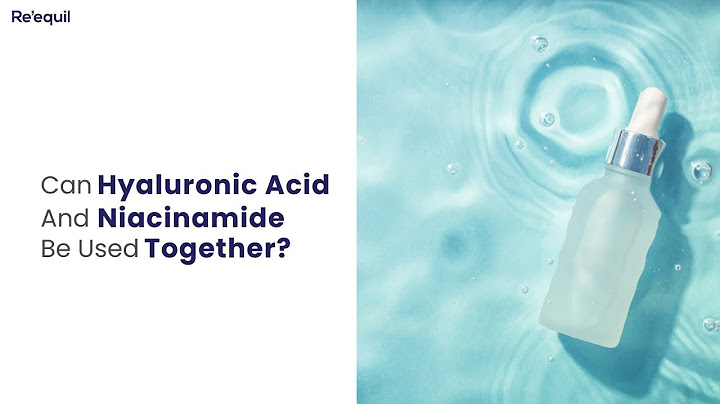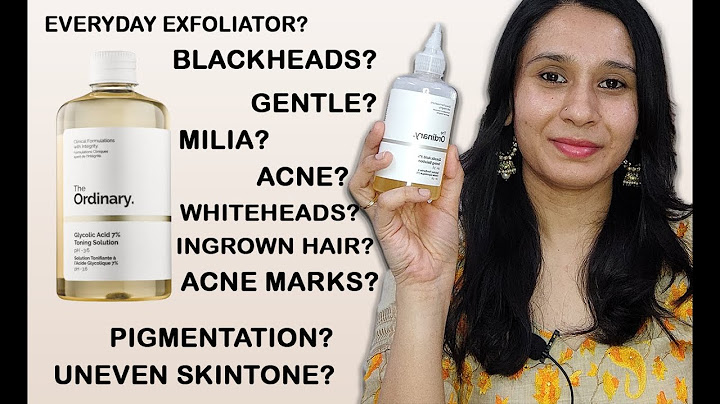 Show
Dermatologists agree that glycolic acid and retinol are two of the most important ingredients in preventing and treating signs of aging. But, what do they do exactly? When considering glycolic acid vs. retinol, how do you know which is right for your skin type? We’re breaking down everything you need to know about glycolic acid and retinol, including:
What does glycolic acid do?Glycolic acid is a water-soluble alpha hydroxy acid derived from sugar cane that is common ingredient featured in a variety of skin care products, from cleansers to exfoliators. “I have been a huge proponent of glycolic acid as it is a chemical exfoliator, which means it doesn't strip the skin of its natural oils,” says board-certified dermatologist and LovelySkin founder and CEO Dr. Joel Schlessinger. “Instead, glycolic acid works by gently loosening the dead layer of skin on the surface, revealing the glowing epidermis below.” Since glycolic acid helps slough off the top layer of dead skin cells, it also allows for better penetration of your face treatment products, making it effective in treating issues with skin discoloration, acne, rough texture and large pores. If you struggle with any of these issues yourself, try the SkinCeuticals Glycolic 10 Renew Overnight. It’s an over-the-counter yet advanced glycolic acid treatment that uses a free acid value of 10% glycolic acid to provide deep exfoliation, which improves skin tone and texture.  What does retinol do?Retinol is a derivative of vitamin A and comes in a multitude of strengths and iterations. Considered the gold standard in effective anti-aging, retinol helps encourage cellular turnover deep beneath the skin to help boost collagen production, which in turn improves the look of wrinkles, sun damage, large pores, acne and more. However, retinol is not a one-size-fits-all type of skin care ingredient. In its strongest concentrations, retinol has been known to irritate the skin’s moisture barrier, resulting in flaking, dryness and skin redness.  New retinol users should start with a lower concentration retinol, like the SkinCeuticals Retinol 0.5 Refining Night Cream, and work their way up to higher percentages as your skin adapts. This advanced nighttime treatment uses 0.5% pure retinol in a time-released formula to ensure you receive a steady delivery of benefits as you sleep. Bisabolol, which is similar to chamomile, is also used in this formula to help calm and soothe any irritation. For mature skin, try Vichy LiftActiv Retinol HA Anti-Wrinkle Concentrate. This formula contains Vichy’s highest concentration of retinol, plus this lightweight serum cream melts into skin and can be worn underneath your daily moisturizer. Vichy volcanic water and hyaluronic acid come together to help soothe and support the skin’s moisture barrier for minimal irritation that leaves you with a soft, comfortable complexion.  Glycolic acid vs. retinolWhen deciding between glycolic acid vs. retinol and determining which of these two powerhouse ingredients you should be using, there are a few things to consider. These include your age, your skin type and any skin conditions you struggle with. Overall, glycolic acid is a milder skin care ingredient in comparison to retinol, making it easier to try first. Start first by incorporating a glycolic acid product into your daily routine in your twenties, then consider adding retinol into your skin care regimen by your thirties when collagen and elastin production starts to slow down a bit more. It’s also important to consider how each ingredient uniquely benefits the skin. Glycolic acid sloughs away dead skin cells on the surface, revealing fresher cells beneath. Whereas retinol works on a deeper level to encourage collagen and elastin production. Both help with cell renewal and provide many of the same benefits to the skin in different ways. Overall, if you want to improve uneven texture, oiliness and clogged pores, we recommend turning to a glycolic acid treatment for help. If you want to prevent and address fine lines, wrinkles and sun damage, then retinol is your best choice! When dealing with acne, both glycolic acid and retinol products can be very beneficial. Can you use glycolic acid and retinol together?If both of these ingredients can help improve skin, can you use glycolic acid and retinol together to reap all the benefits? It turns out you don’t have to choose between glycolic acid vs. retinol. It’s possible to add both glycolic acid and retinol safely into your skin care routine, but there are a couple of things that you’ll want to know beforehand. Here are a few things to consider:
If you are new to glycolic acid and retinol, we recommend trying La Roche-Posay Retinol B3 Serum and La Roche-Posay Glycolic B5. Both serums are elegantly formulated to harness the rejuvenating powers of glycolic acid and retinol while soothing the skin with nourishing ingredients like niacinamide and hyaluronic acid. If you want to learn how well they work, we recommend reading these La Roche-Posay Retinol B3 reviews and Glycolic B5 reviews.   Want to learn more about the benefits of glycolic acid? Find all your answers and more on the LovelySkin Blog. Shop this blogAbout the AuthorJill is a content writer for LovelySkin. She loves reading up on the latest beauty trends, going to concerts with her husband and baking with her three kids. Other Posts by Jill Follow us on socialFollow us on social networks and be one of the first to learn about sales, giveaways, and free samples Related Posts & VideosCan I use glycolic acid and retinol on the same day?Don't use glycolic acid and retinol at the same time in your routine. Start by introducing one of them and use it consistently for a week, then switch to the other for a week. You may want to take additional time if you know you have sensitive skin.
Should you use glycolic acid in the morning or at night?As for whether you should apply glycolic acid morning or night, we recommend applying it as part of your evening skincare routine. Glycolic acid can cause “photosensitivity,” which means it makes your skin more sensitive to the sun's UV rays, upping your chances of a sunburn or skin damage.
Can I use AHA in the morning and retinol at night?Just take care to avoid using both ingredients at the same time of day, as this can easily lead to irritation. Instead, if your skin can handle both ingredients on the same day, you can try using an AHA in the morning and retinol at night, or vice versa.
Is it OK to use glycolic acid toner with retinol?While glycolic acid and retinol are effective actives for any anti-aging skincare routine, you should never use them at the same time. Trust us, using both together is a recipe for irritation. One option is to use either glycolic acid or retinol in your skincare routine. Glycolic acid is the more gentle ingredient.
|

Related Posts
Advertising
LATEST NEWS
Advertising
Populer
Advertising
About

Copyright © 2024 kemunculan Inc.
















